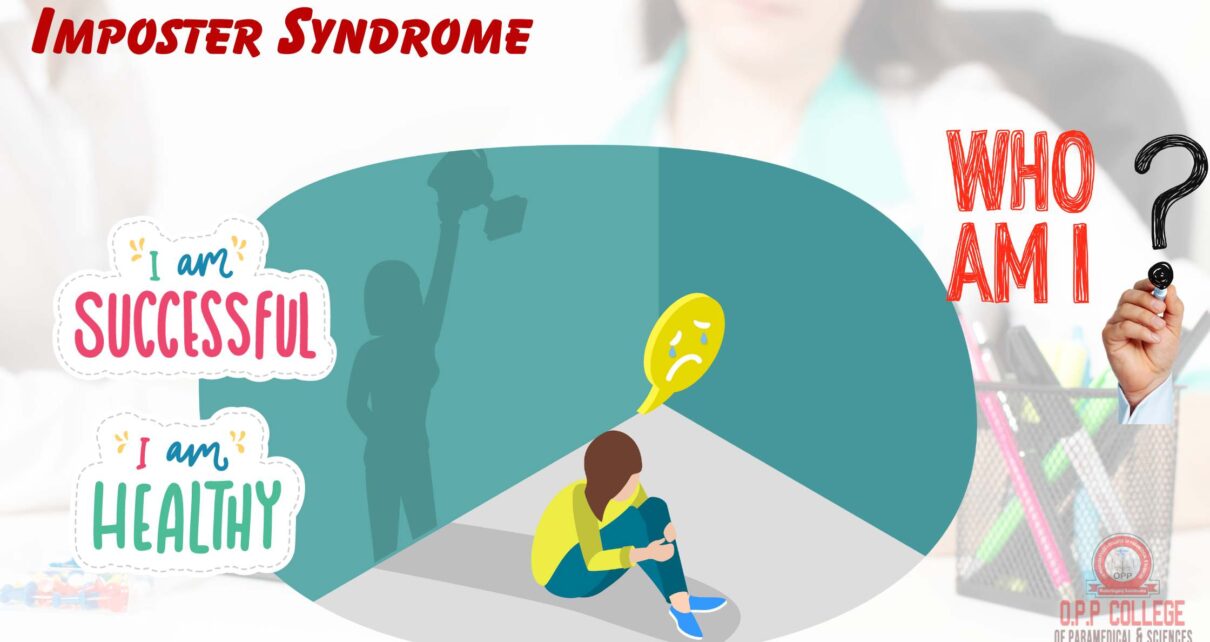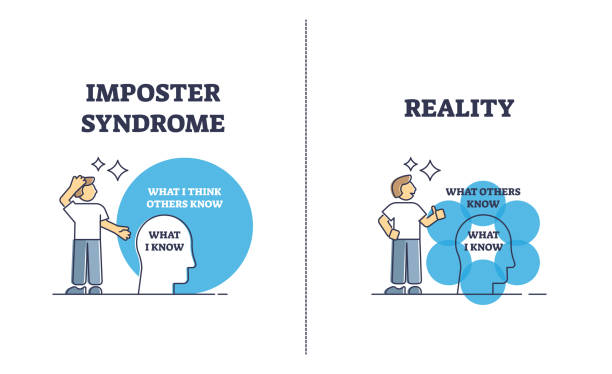
Hey there, future healthcare heroes! you’re in the hallowed halls of your medical school, surrounded by brilliant minds, complicated textbooks, and an unrelenting stethoscope around your neck. You’re chasing your dream of becoming a doctor. Yet, a nagging question keeps haunting you: “Am I smart enough to be a doctor?” You, my friend, are not alone. Welcome to the club of medical students battling Imposter Syndrome.
Table of Contents

In this friendly pattern of writing, let’s embark on a journey to understand, tackle, and ultimately conquer Imposter Syndrome during your time in medical school.
Imposter Syndrome Demystified
Imposter Syndrome, in a nutshell, is that sneaky little voice in your head that whispers, “You don’t belong here” or “You’re not as smart as they think you are.” It’s the feeling of being a fraud despite ample evidence of your capabilities. If you’ve ever felt like you’re not measuring up, you’ve danced with the Imposter Syndrome demon.
Understanding Imposter Syndrome in Medical School
Imposter Syndrome is particularly prevalent in fields like medicine, where the expectations and pressures are sky-high. In medical school, you’re surrounded by some of the brightest minds, all striving for excellence. It’s easy to feel like you’re falling short, especially when faced with the sheer volume of information and the challenges of clinical rotations.
The Perfectionist’s Dilemma
Medical students, by nature, are often perfectionists. You strive for excellence in every aspect of your medical journey, which is admirable. But here’s where the trouble starts. The pursuit of perfection sometimes opens the door for Imposter Syndrome. It plants seeds of self-doubt, making you feel inadequate in the face of relentless academic challenges
The Duality of Success
One peculiar aspect of Imposter Syndrome is its ability to turn success into a source of anxiety. When you achieve a milestone, it’s not uncommon for that nagging voice to whisper, “Was it a fluke?” or “Did I just get lucky?” This self-doubt can undermine your confidence even in moments of triumph.

Combatting Imposter Syndrome
Recognizing that you’re battling Imposter Syndrome is the first step toward conquering it. Here are some strategies to help you regain confidence in your journey through medical school:
1. Acknowledge Your Feelings: Understand that Imposter Syndrome is a common experience among medical students. Acknowledging your feelings of self-doubt can lessen their impact.
2. Seek Support: Don’t hesitate to lean on your support system. Friends, family, mentors, and fellow students can provide valuable perspective and encouragement.
3. Set Realistic Goals: Instead of aiming for perfection, focus on setting achievable, incremental goals. Celebrate your successes, no matter how small.
4. Embrace Failure: Mistakes are part of the learning process. Rather than viewing them as failures, see them as opportunities to grow and improve.
5. Practice Self-Compassion: Treat yourself with the same kindness and understanding you would offer to a friend facing similar challenges.
6. Keep a Success Journal: Document your achievements, big and small, to remind yourself of your competence during moments of self-doubt.
7. Seek Professional Help: If Imposter Syndrome is severely affecting your mental health and well-being, consider speaking with a therapist or counselor who can provide guidance and support.
Overcoming Imposter Syndrome
The first step in overcoming Imposter Syndrome is recognizing that you’re not alone. Many of your fellow medical students, and even established doctors, have experienced these feelings. It’s a normal response to the immense pressure and expectations of the field.
Here are some strategies to combat Imposter Syndrome:
- Talk About It: Share your feelings with trusted friends, family, or a counselor. You’ll likely find that they’ve experienced similar doubts at some point.
- Acknowledge Achievements: Keep a journal of your accomplishments, big or small, and review it regularly to remind yourself of your capabilities.
- Set Realistic Goals: Instead of striving for perfection, focus on setting achievable goals. Celebrate your progress along the way.
- Seek Mentorship: Connect with mentors or advisors who can provide guidance and reassurance. They’ve likely navigated similar challenges.
- Practice Self-Compassion: Treat yourself with the same kindness and understanding that you would offer to a friend facing similar doubts.
Conclusion: You’re Smart Enough, and You Belong Here
In conclusion, Imposter Syndrome may be a formidable adversary, but it’s one that can be defeated. With self-awareness, support, and the right strategies, you can regain confidence on your path through medical school. You are indeed smart enough to be a doctor, and the world needs your unique contributions to the field of medicine.
So, silence that inner critic, my fellow future doctors, and stride confidently on your journey toward medical excellence. Remember, you belong here, and your brilliance will shine through.
